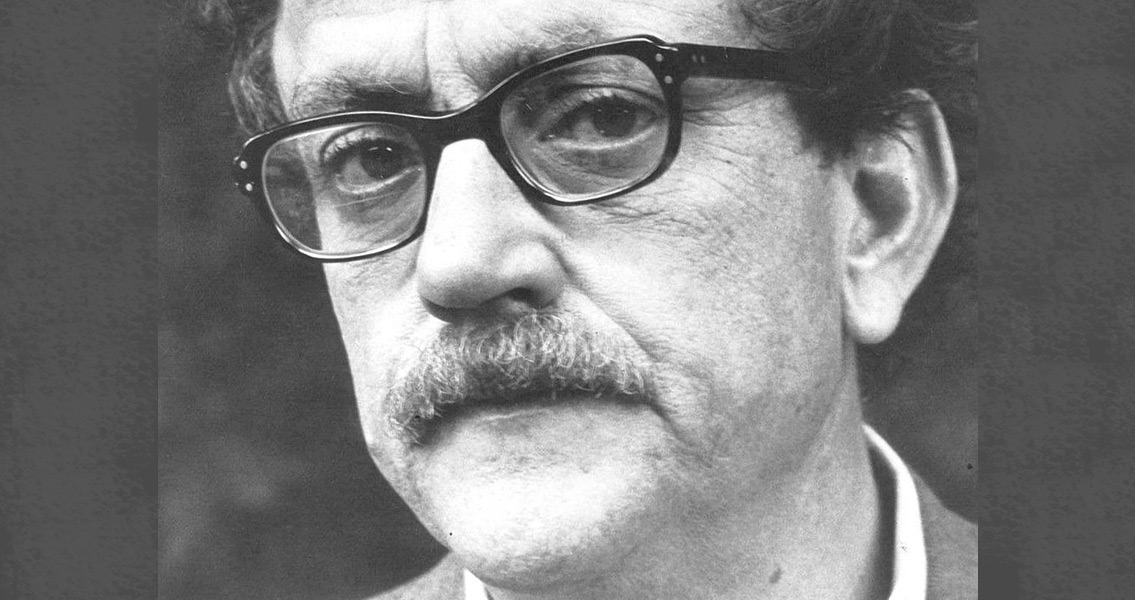<![CDATA[On 10th November, 1973, a public school board in North Dakota attracted the attention of the American media when it incinerated copies of Kurt Vonnegut's 'Slaughterhouse 5'. The school board in Drake, North Dakota, burnt 32 copies of Vonnegut's book in a school furnace. The small town of just 650 people soon found itself at the centre of a national controversy. Perhaps Vonnegut's most famous novel, Slaughterhouse Five is considered a classic, regularly featuring in greatest books lists. It has also repeatedly been the source of conflict, with multiple attempts made to ban it from classrooms since its 1969 publication. The events in Drake centered around Bruce Severy, a 26 year old Literature teacher who had recently moved to the town with his family. Young and idealistic, newspaper reports suggest that Severy didn't fit in with Drake's largely traditional, church centred community. Severy decided to include several contemporary, challenging novels in his school's literature curriculum, among them Slaughterhouse Five, and 'Deliverance' by James Dickey. Initially, it seems that there were no objections to the book, but a backlash erupted when one student, unhappy with what they had been asked to read, showed the reading material to their parents. A complaint was lodged with the school board, and from there the situation escalated dramatically. Three books were set aside to be removed from the school curriculum - Slaughterhouse Five, Deliverance and a short story anthology including works by William Faulkner, John Steinbeck and Ernest Hemingway. All three books had been included on the school curriculum by Severy. An inevitable association, and one undoubtedly furthered by the press, was with the book burnings of Nazi Germany. Events symbolically tied to oppressive, totalitarian governments, book burnings are inevitably considered symptomatic of authoritarian censorship. It would be reductive to compare the events in Drake with those in Nazi Germany, not least because this was not a public display of state authority. Burning material which schools no longer needed in an incinerator was common practice, according to the board. Nevertheless, once news broke that copies of Slaughterhouse Five had been burnt, serious questions were raised about censorship in the USA. Slaughterhouse Five itself is an absurdist, challenging work of science fiction and social commentary. The protagonist is Billy Pilgrim, an American POW who witnesses the bombing of Dresden and is abducted by aliens in later life. Pilgrim becomes 'unstuck in time', forcing him to move back and forth along his own timeline, witnessing events, such as those in Dresden, over and over again. The book raises a number of issues, not least the surreal nature of existence. The main theme however, is the futility of war, as expressed through the bombing of Dresden (an event Vonnegut himself witnessed first hand.) As Pilgrim is forced to witness the most shocking moment in his life again and again, war is increasingly revealed as unnecessary injustice, an avoidable tragedy which keeps on coming back but doesn't have to be repeated. Attempts to ban Slaughterhouse Five had been made before 1973, and there were many more afterwards. The book has been criticised for both its profane language, as well as having broader accusations leveled at it for being both anti-American and anti-Christian. It currently ranks number 29 on the American Library Association's list of 'Banned or Challenged Classics'. Vonnegut himself wrote a letter to Drake Public School Board President Charles McCarthy, a man quoted in the press as saying the book was unsuitable for children. "After I have said all this, I am sure you are still ready to respond, in effect, “Yes, yes–but it still remains our right and our responsibility to decide what books our children are going to be made to read in our community.” This is surely so. But it is also true that if you exercise that right and fulfill that responsibility in an ignorant, harsh, un-American manner, then people are entitled to call you bad citizens and fools. Even your own children are entitled to call you that." Severy, the teacher at the heart of the scandal, did not have his contract renewed at the end of the following academic year. He left Drake, to return to his native California. ]]>
Vonnegut's Slaughterhouse 5 Incinerated
